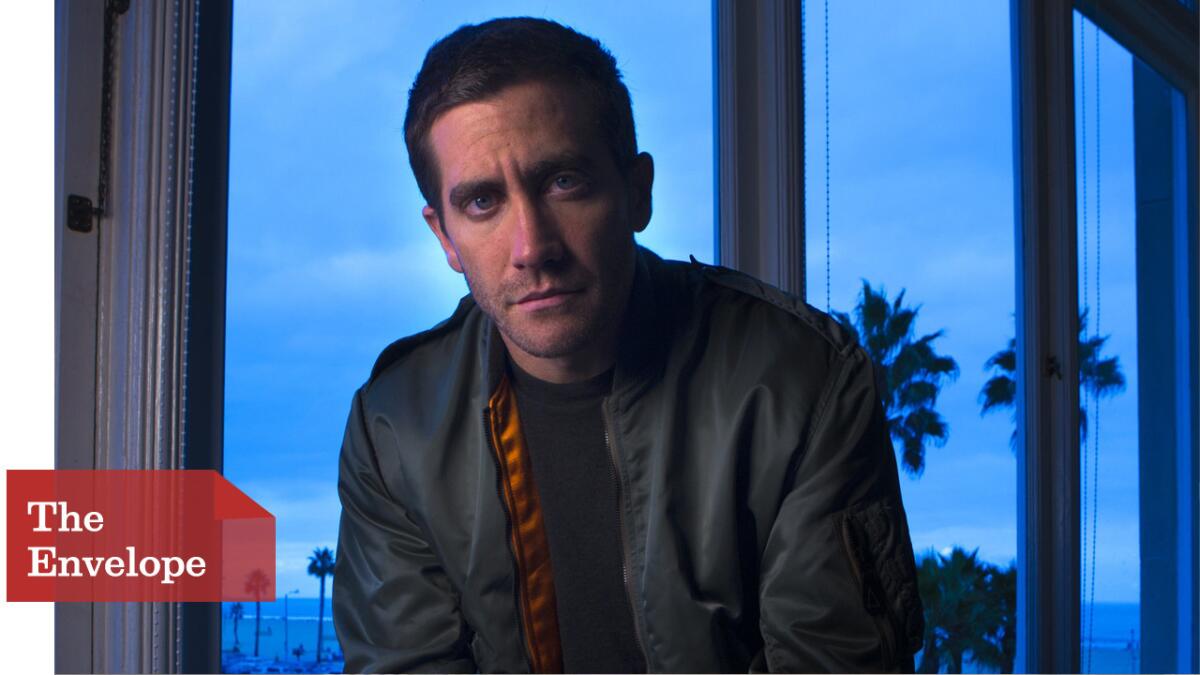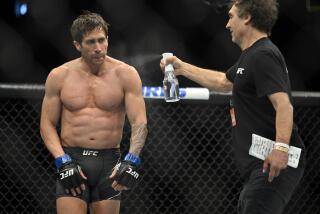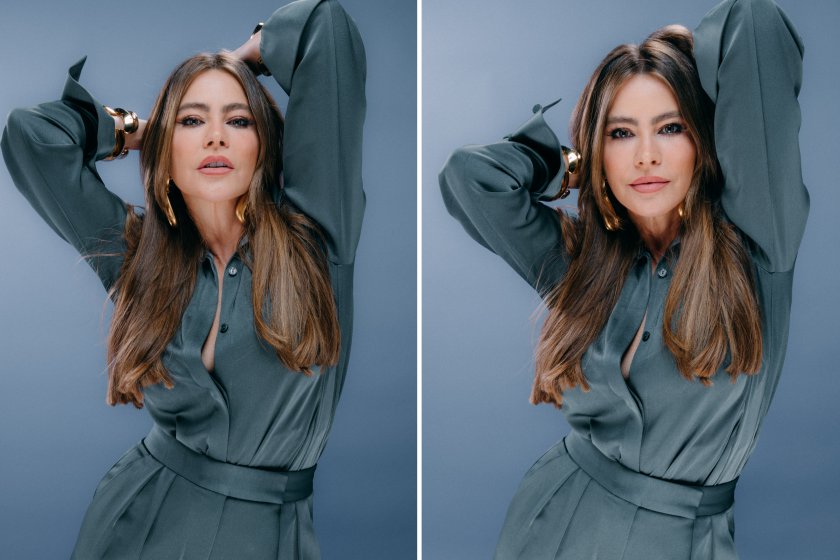The Envelope: Jake Gyllenhaal digs deep for gritty ‘Nightcrawler’ role

In “Nightcrawler,” Jake Gyllenhaal plays a man whose drive for success leads him to do despicable things. As Louis Bloom — a freelancer who sells graphic video footage of crimes and accidents to local news stations — he drives recklessly through the L.A. streets, sexually blackmails a colleague and even tinkers with crime scene evidence to make a shot better.
He seems beneath contempt, but Gyllenhaal felt something pulling him toward the dark character.
“There is still a Lou in me,” the actor notes. “He’s exploring how far you’ll really go for success. There’s an entire generation that’s been fed the idea of success at any cost, and many of us are functioning in a way where morals and ethics become very hazy.”
When he was younger, Gyllenhaal says, achievement was dictated more by outside forces than his internal compass. As he signed up for big-budget action flicks — 2004’s “The Day After Tomorrow,” 2010’s “Prince of Persia: The Sands of Time” — he found himself giving in to industry pressure.
“I didn’t totally understand what I wanted,” he says. “There was the idea that if your movie makes a lot of money, then that’s success. But I don’t subscribe to that now.”
Cupping a warm drink, his back to the big picture windows overlooking a fog-shrouded Pacific Ocean lapping at the edges of Santa Monica, Gyllenhaal contemplates his place in Hollywood and what exactly it is he wants out of it.
His father, filmmaker Stephen Gyllenhaal, wanders over and hesitantly interrupts to ask his son for the valet ticket. They agree to meet up to say goodbye in a few hours.
Gyllenhaal’s dad is one of the few ties the actor still has to Los Angeles. The actor moved to New York a few years ago but kept a home in the Hollywood Hills until last month, when he sold it for $3.5 million. He grew up in L.A., near Koreatown, but began to explore the city’s underbelly only in the last few years through his work.
To prepare for 2012’s cop drama “End of Watch,” he went for ride-alongs with police officers that often ended up at gritty crime scenes. “Nightcrawler,” a film made on a budget of just $7 million and shot over 25 days, meanwhile, took him to seedy parts of town as he trailed news stringers on the hunt for the latest tragedy.
“They had, like, 10 scanners in their car,” he says, recalling his nights out with freelance cameramen. “It was this symphony of codes and sounds and pieces of L.A. communicating about emergencies you’d never otherwise be aware of.”
Much has been made of how far Gyllenhaal went to play Lou Bloom. In addition to time spent with real-life “nightcrawlers,” he memorized the dialogue-heavy script like a play — all at once before production began. He lost 30 pounds so he would resemble a coyote, the hungry, prowling creature on which he based some of Bloom’s persona. He even punched a mirror so hard in one scene that he had to go to the hospital to get stitches — an incident that made it onto TMZ.
It wasn’t glamorous, but it’s the kind of experience Gyllenhaal finds himself craving these days because it has helped shift his perspective on acting. A trade he once viewed as “a really selfish, somewhat narcissistic, immature job” became an opportunity to explore empathy — and broaden his own life.
He pulls out his iPhone and shows off a few shirtless pictures of himself in a boxing ring. They’re from the set of “Southpaw,” an Antoine Fuqua-directed boxing drama he has just wrapped. He looks fit but mean in the photos, transforming himself nearly past recognition yet again.
“I spent six months training for this,” he says, beaming. “Now I’m looking up boxing all the time. It will be a part of my life forever. There’s something really beautiful about making new relationships and having what you do create something new to connect with in a real way.
“The business side is trivial to me now. I’m more interested in craft. If I’ve inhabited a character and given everything to a director, then I’ve succeeded.”
Twitter: @AmyKinLA
More to Read
From the Oscars to the Emmys.
Get the Envelope newsletter for exclusive awards season coverage, behind-the-scenes stories from the Envelope podcast and columnist Glenn Whipp’s must-read analysis.
You may occasionally receive promotional content from the Los Angeles Times.










